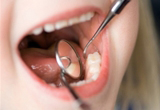 Children Dentistry at Aurora Dental
At Aurora Dental, we deeply believe in the value of helping parents build the foundations that are required for a child to enjoy optimal oral health, now and long into the future, By teaching children at an early age about the reasons why dental hygiene is important, and at the same time supporting the growth and development of their teeth through proper nutrition, you can help your child maximize the chance that they'll keep their natural teeth in good working order for life.
Children Dentistry at Aurora Dental
At Aurora Dental, we deeply believe in the value of helping parents build the foundations that are required for a child to enjoy optimal oral health, now and long into the future, By teaching children at an early age about the reasons why dental hygiene is important, and at the same time supporting the growth and development of their teeth through proper nutrition, you can help your child maximize the chance that they'll keep their natural teeth in good working order for life.The dental problems that do arise in childhood can often be traced to genetic or developmental issues. However, while a child is still growing and their bones are quite supple, it's far easier (and less traumatic) to carry out corrective procedures that set the foundations for an adult life free of major dental problems.

Every parent wants their child to be healthy and happy. That's why it's so important to provide your children with the fundamentals that are required for good strong healthy teeth. By doing so, you'll not only help ensure that they can eat and speak with ease and comfort, but also give them the confidence and self-esteem that comes from having a radiant smile that proudly displays a set of unblemished, straight, white teeth.
Read More ...

Nursing bottle decay usually occurs when infants or young children are put to bed with a bottle which contains milk, juice, coke, or something else that contains some type of sugar. The sugar remains on the teeth for 8 to 12 hours. It decays the upper teeth much more than the lower teeth. Nursing bottle decay is sneaky. It starts around the back of the teeth, then progresses around the sides. By the time you can see it in the front, it is well established on the back and side of the teeth.
Read More ...

Dental Sealants are coatings for the teeth that prevent cavities. They are used in the back teeth because a toothbrush cannot clean the crevices of the larger can build on these back teeth, causing cavities. Before a cavity can form, a sealant should be placed. If the sealants are placed soon enough, they are 100% effective in cavity prevention in children. Many children between the ages of six and 12 receive sealants on their teeth.
Read More ...

Fluoride toothpaste contains quite a bit of fluoride: about 1000 times that contained in fluoridates water. It is not intended to be swallowed. Excessive swallowed fluoride have no affect on primary teeth, but can lead to stained permanent teeth. So, please do not brush your child's teeth with fluoridated toothpaste more than twice each day.
Read More ...

